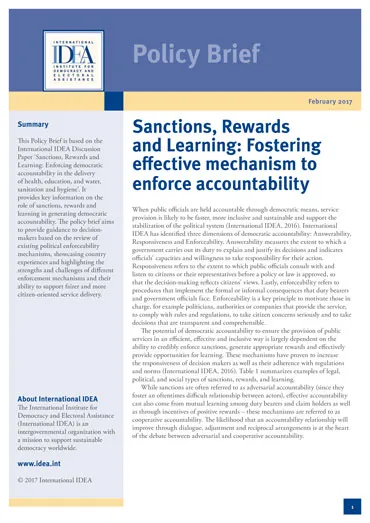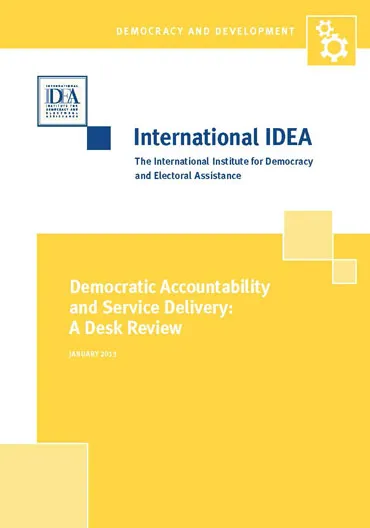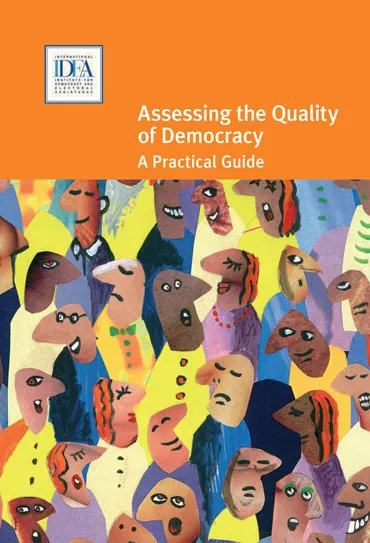Sanctions, Rewards and Learning: Enforcing democratic accountability in the delivery of health, education, and water, sanitation and hygiene
Effective service provision entails the efficient and effective provision of public services, but also giving citizens and groups within society—regardless of gender, religion, age, sexual orientation, ethnicity or class—the opportunity to participate in the relevant decision-making processes.
This Discussion Paper reviews the academic and policy literature on the role of sanctions, rewards and learning in generating democratic accountability in three service sectors: health, education and water, sanitation and hygiene (WASH).
It argues that successful democratic accountability in service delivery depends on the presence of functioning institutions, longer time horizons and the ability to tap into the power of collective action.
Details
Contents
Executive summary
1. Introduction
2. Mechanisms of democratic accountability in service delivery
3. Accountability challenges in public services: health, education and WASH
4. Evaluating mechanisms of accountability: success, inclusiveness and sustainability
5. Conclusions and recommendations
References
Annex: Case Studies
About the author
About International IDEA
More International IDEA Discussion Papers
Give us feedback
Do you have a question or feedback about this publication? Leave us your feedback, and we’ll get back to you
Send feedbackSanctions, Rewards and Learning: Enforcing democratic accountability in the delivery of health, education, and water, sanitation and hygiene

| Total views | 3716 |
|---|---|
| Downloads | 5 |
| Rating |
Give us feedback
Do you have a question or feedback about this publication? Leave us your feedback, and we’ll get back to you
Send feedback










